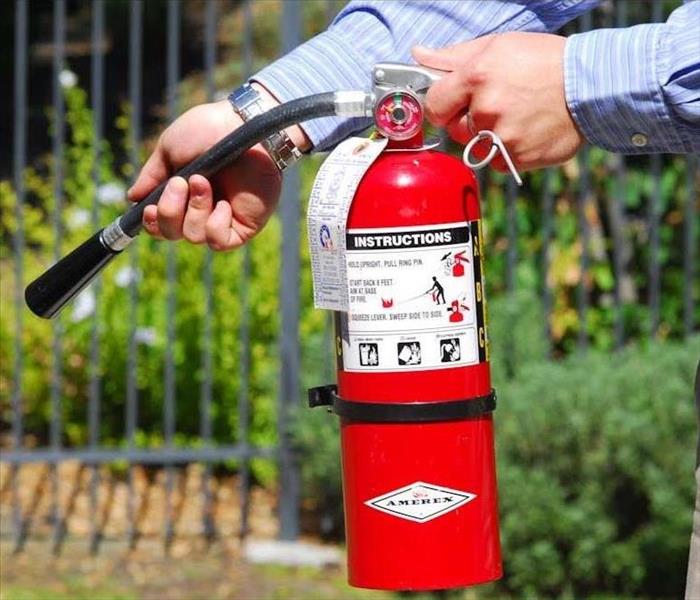Fire Extinguisher - Every Home Needs One
8/17/2017 (Permalink)
A portable fire extinguisher can save lives and property by putting out a small fire or containing it until the fire department arrives; but portable extinguishers have limitations. Because fire grows and spreads so rapidly, the #1 priority for residents is to get out safely.
Fire extinguishers are one element of a fire response plan, but the primary element is safe escape. Every household should have a home fire escape plan and working smoke alarms.
Safety tips
- Use a portable fire extinguisher when the fire is confined to a small area, such as a wastebasket, and is not growing; everyone has exited the building; the fire department has been called or is being called; and the room is not filled with smoke.
- To operate a fire extinguisher, remember the word PASS:
- Pull the pin. Hold the extinguisher with the nozzle pointing away from you, and release the locking mechanism.
- Aim low. Point the extinguisher at the base of the fire.
- Squeeze the lever slowly and evenly.
- Sweep the nozzle from side-to-side.
- For the home, select a multi-purpose extinguisher (can be used on all types of home fires) that is large enough to put out a small fire, but not so heavy as to be difficult to handle.
- Choose a fire extinguisher that carries the label of an independent testing laboratory.
- Read the instructions that come with the fire extinguisher and become familiar with its parts and operation before a fire breaks out. Local fire departments or fire equipment distributors often offer hands-on fire extinguisher trainings.
- Install fire extinguishers close to an exit and keep your back to a clear exit when you use the device so you can make an easy escape if the fire cannot be controlled. If the room fills with smoke, leave immediately.
- Know when to go. Fire extinguishers are one element of a fire response plan, but the primary element is safe escape. Every household should have a home fire escape plan and working smoke alarms.
Article from nfpa.org






 24/7 Emergency Service
24/7 Emergency Service
